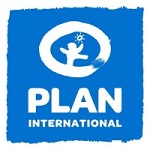
Plan International was founded over 75 years ago with a mission to promote and protect the rights of children. The organisation was set up by British journalist John Langdon-Davies and refugee worker Eric Muggeridge in 1937, with the original aim to provide food, accommodation and education to children whose lives had been disrupted by the Spanish Civil War. Langdon-Davies conceived the idea of a personal relationship between a child and a sponsor – a model that puts the child at the centre, and remains the core of what we do. Today, Plan International is a global organisation that is active in over 70 countries to advance children’s rights and equality for girls. Who We Are We work with communities around the world to end the cycle of poverty for children. We work with communities around the world to end the cycle of poverty for children. Founded over 70 years ago, Plan is a nearly $800 million organization often ranked among the top 10 international development agencies by reputation, size and scope. We work side-by-side with communities in 50 developing countries to end the cycle of poverty for children, developing solutions to ensure long-term sustainability. Our level of community engagement, long-term outlook and constant focus on the needs and priorities of children is unique among international development organizations. Our solutions are designed up-front to be owned by communities for generations to come and range from clean water and health care programs, to education projects and child protection initiatives. Community by community, Plan works to promise futures that are worthy of all children’s potential. Our Vision Our vision is of a world in which all children realize their full potential in societies that respect people’s rights and dignity. Our Mission Plan strives to achieve lasting improvements in the quality of life of vulnerable children in developing countries by: Enabling children, their families and their communities to meet basic needs and to increase their ability to participate in and benefit from their societies; Fostering relationships to increase understanding and unity among peoples of different cultures and countries; and Promoting the rights and interests of the world’s children.
- Experience 3 years
Plan International strives to advance children’s rights and equality for girls all over the world. As an independent development and humanitarian organization, we work alongside children, young people, our supporters and partners to tackle the root causes of the challenges facing girls and all vulnerable children. We support children’s rights from birth until they reach adulthood and enable children to prepare for and respond to crises and adversity. We drive changes in practice and policy at local, national and global levels using our reach, experience and knowledge. For over 80 years we have been building powerful partnerships for children, and we are active in over 75 countries. Plan International works in 70 Countries across Africa, Asia, Europe and the Americas. Plan’s Global Strategic Goals (2017-2022) is to advance Children’s Rights and Equality for Girls and our Ambition is, “together, we take action so that 100 million girls learn, lead, decide and thrive”. We reach as many children as possible, particularly those who are excluded or marginalized through the delivery of high- quality programmes that deliver long-lasting benefits to children and their communities. Plan International Nigeria is part of the global federation of Plan International and was registered as a National Organization in 2014 in Nigeria. Our intervention is currently focused on Protection (GBV and CP), basic education; improving community health services, youth and citizens’ participation in governance and creating economic opportunities and livelihoods for the neediest people, building resilient communities through our emergency and humanitarian response in the Northeast. Plan Nigeria works with communities, civil society organizations, development partners, government at all levels and the private sector. For project background, Purpose of the Consultancy Assignment, Intended Users of this report, Methodology, Scope of Work, Roles and Responsibilities of Consultant, Timeframe and estimated working days and Reporting Format:
Purpose of the Consultancy Assignment:
Formative research is essential to effective strategy design in any SBCC project. However, integrated SBCC programs must consider additional nuances and considerations. Before designing an integrated SBCC strategy, there is a need to conduct some level of formative research to better understand audiences and the health topics and behaviors we plan to address. Findings from this research will be used to inform the development of our SBCC strategy.
For ASPIRE project, the formative research will be focused on women, men and adolescent girls and boys on Sexual Reproductive Health and Rights (SRHR) Gender Equality (GE), Child Protection (CP) particularly Gender Based Violence GBV)
In general, this formative research should uncover what people currently know, think, feel and do about the relevant topics and behaviors, and to understand their motivations and barriers to changing or adopting new behaviors, for example, women, men and adolescent girls’ and boys’ behaviors, understanding of SRHR, GE and child protection as well as society acceptance on the rights of women and men, adolescent girls and boys. Moreover, parents and guardians of adolescents need to be incorporated to achieve the set goal because adolescent boys and girls
need parental care and financial support before accessing and making use of some of the SRHR, GE and child protection services.
In integrated SBCC programs, the formative research should also help determine whether and how different topics and behaviors relate to one another. Both types of information will help the program and partners determine what to include in an integrated SBCC strategy, and provide insight on how best to do it. Engage a wide representation of stakeholders at all levels (e.g., communities, leaders and other stakeholders) when identifying which issues to address.
Plan International Canada, with funding from Global Affaires Canada and individual donors, is working in partnership with some INGOs and local NGOs to Improve realization of sexual and reproductive health and rights for adolescent girls and women, including vulnerable populations, in Bauchi and Sokoto states.
The project aims to address Patriarchal and gender norms, Poor societal attitudes towards mental illness, Low social status of women, Unplanned pregnancy and early marriage, Little or no sexuality education and protection education, Unpaid care work, Gender-based violence, Weak health systems that lack mental health and protection services, especially for Almajiris, Minimal access to SRHR information through formal and informal educational systems, particularly in Islamic schools (Tsangaya and Islamiyya), Limited access to SRHR services, including contraception and family planning.
3. Intended Users of this report
The staff of Plan International Nigeria and Plan International Canada will be the main users of the results of the formative research. In addition, key stakeholders in the project, such as government ministries / executing agencies, partner NGOs, local authorities and communities are the parties interested in the results.
4. Methodology
As this is a formative research, methodology and tools will include more traditional approaches, such as focus group discussions (FGDs) or in-depth interviews (IDIs). Less traditional, user-centered ethnographic techniques include direct observation, immersion, mystery client experiences, interactions with spaces, stakeholders journey mapping, photo diaries, photo elicitation and card sorts. These less conventional methodologies can help provide more well-rounded perspectives of the target audience’s understanding and experience with the topic areas, and yield unexpected, actionable insights.
5. Scope of Work
The primary objectives of Aspire Formative Researcher may Include:
- Establish baseline/Bench Mark for some approved indicators of the project’s intended outcomes.
- Provide information for setting realistic and achievable targets for the project BCC and Media Content.
- Provide relevant information and evidence serving as the foundation for a
- qualitative gender equality and child protection assessment (to be carried at a later stage under a separate TOR and contract)
- Provide evidence on key contextual factors and verify Plan International’s understanding of the situation in the project implementation areas in Bauchi and Sokoto States comprising 10 LGAs in Bauchi and 23 LGAs in Sokoto.
6. Roles and Responsibilities of Consultant:
- Review project documents, including the performance measurement framework (PMF), baseline study report if available
- Obtain research ethical approvals as per national and state guidelines, including paying special attention to the unique ethical considerations of doing studies/research with and about children and young people in general, and on highly sensitive topics (i.e. child protection issues including GBV, and ASRHR)
- Recruit translators, enumerators/data collectors and field supervisors (as necessary) and data entry clerks, ensuring gender balance and as appropriate;
- Prepare and conduct enumerator/ data collector/ supervisor training with support from Plan International Nigeria, including co-facilitation of a gender equality and child protection component with Plan International Staff;
- Ensure all tools are translated into local languages (Hausa) and piloted in a safe and meaningful manner with women, adolescent girls and men prior to enumerator training;
- Prepare a plan for carrying out the field data collection.
- Data collection using plan International one of the approved methods with technical inputs from Plan Nigeria and CNO M&E technical team.
- Oversee data collection including piloting, supervision and spot checking;
- Oversee data entry as per agreed upon software and data entry protocols established;
- Ensure all original data collection (whether in paper or electric form) of raw data are maintained and submitted to Plan International Nigeria, as well as training tools, with the final data
- Write the report of the study, incorporating the comments from Plan International Canada and Plan International Nigeria and from the data sharing workshop.
- Collaborate with Plan International to integrate all feedback provided to create final report.
- During the consultancy, the following deliverables are expected:
- Inception report
- Data collection tools
- Enumerator / supervisor training plan and report from enumerator training and piloting
- Translation based on local language (Hausa) usage and need.
- The Consultant will be responsible for engaging personnel and other logistics. All costs associated with the conduct of the study will be the sole responsibility of the engaged Consultant and should be incorporated in the financial proposal.
- Arrange its own logistics for transport of enumerators and field supervisors.
- Ensure all tools are translated into local languages and piloted with AG&YW, and prior to enumerator training.
- Ensure strict adherence to COVID-19 protocols including local and National Government guidance.
Find the complete Job Description Here
Method of Application
Applications should be submitted to [email protected] on or before 12 noon of Friday, 10th June 2022.
Email title should be – Consultant to Conduct Formative Research on SBCC to address GBV, GEF and SRHR for the ASPIRE Project.
Find the complete Job Description Here



